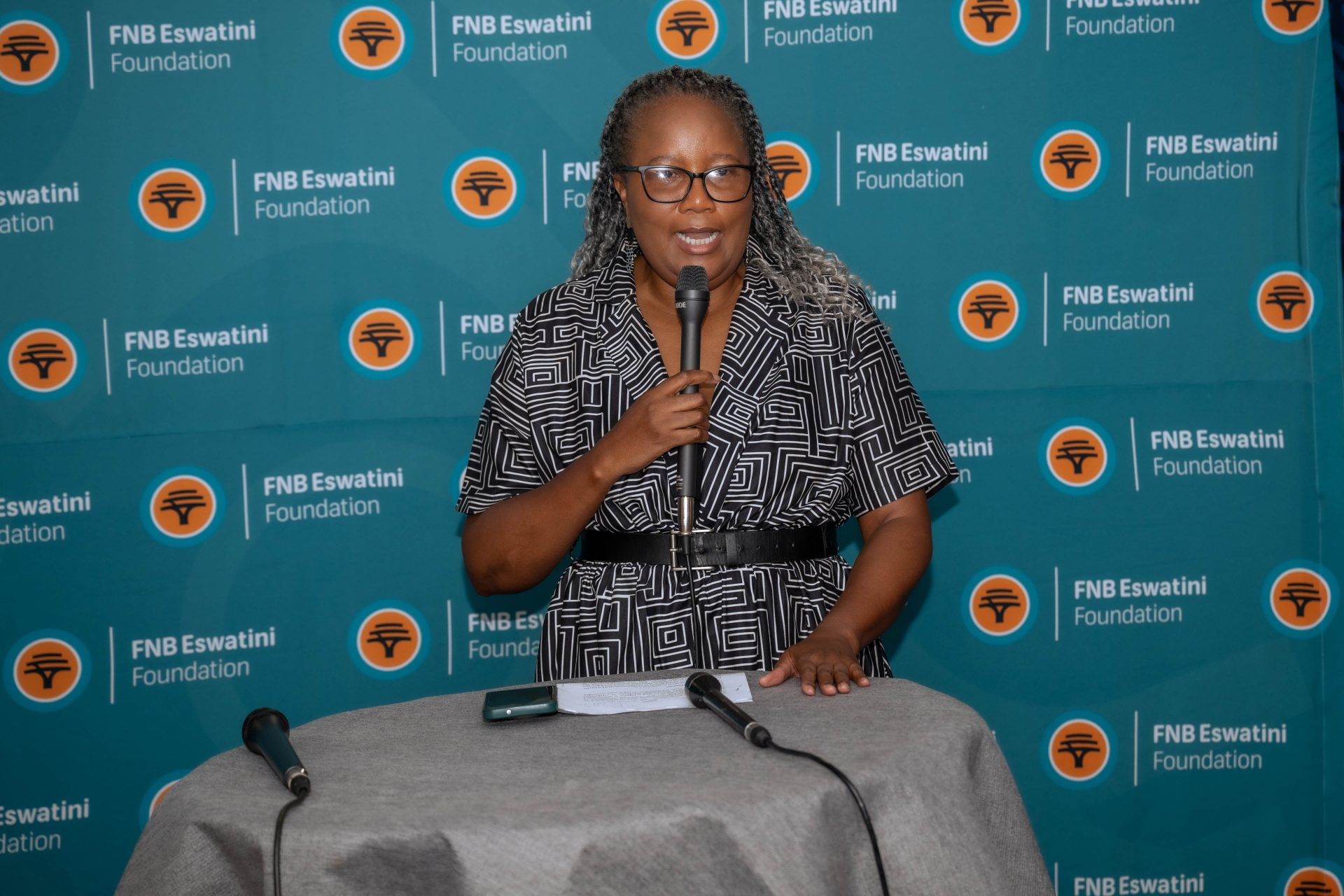By Siphesihle Dlamini
Addressing stakeholders at the FNB Eswatini Foundation Handover Ceremony held on Wednesday at the FNB Eswatini Headquarters in Ezulwini, Lindiwe Dladla, the director of Days For Girls, made a compelling case for the removal of taxation on sanitary pads.
Her call to action highlights a pressing issue that affects the health, education, and dignity of young girls across Eswatini.
Dladla’s remarks came as part of a broader discussion on menstrual health and the stigma surrounding menstruation.
“An issue that deserves urgent attention is the taxation of menstrual products in Eswatini. It’s worth reflecting on the fact that these essential items are often taxed as luxury goods, a categorization that is both unjust and discriminatory,” she stated.
RELATED: Dennis Mbingo appointed FNB CEO Mozambique
This classification not only places a financial burden on those who need these products but also sends a message that menstruation is something to be hidden or deemed unworthy of support.
The director emphasized that removing taxes on menstrual products is not merely a financial adjustment; it represents a significant statement about the values of the nation.
“It says that we, as a nation, prioritize the health, education, and dignity of our girls. I urge policymakers, business leaders, and stakeholders present here today to advocate for this change,” she implored, emphasising the need for collaborative action to address this issue.
Dladla also spoke about the often-overlooked concern of period poverty, a reality that impacts many young girls in Eswatini.
“Today, I want to speak about an issue that is often overlooked but has far-reaching implications: period poverty.
In Eswatini, many young girls face the harsh reality of being unable to afford basic menstrual products.
This means that during their periods, they miss school, lose out on opportunities to excel, and fall behind their peers,” she explained, painting a stark picture of the educational setbacks that arise from inadequate access to menstrual hygiene products.
She further elaborated that period poverty is not merely a matter of access to sanitary pads. “It’s about dignity, equality, and opportunity.
It’s about ensuring that no girl has to choose between her education and her biology,” Dladla asserted.
The concept of menstrual equity was a key theme in Dladla’s speech. “Menstrual equity is more than just a buzzword; it is a transformative idea.
It’s about creating a society where access to menstrual products is a right, not a privilege,” she said. She articulated the profound impact that ensuring access to menstrual products would have on girls’ lives.

“When girls have what they need to manage their periods with dignity, they attend school more regularly, participate in sports, and engage fully in their communities,” she explained, emphasizing the importance of integrating menstrual health into the broader discussions of gender equality and empowerment.
The ripple effects of achieving menstrual equity are substantial, Dladla noted. “Educated girls grow into empowered women who uplift their families, communities, and, ultimately, our nation,” she said, indicating that the benefits of addressing period poverty extend beyond individual girls to the entire society.
Dladla called on everyone present to unite in the effort to create a future where no girl is held back by something as natural and inevitable as her period.
“Together, we can create a future where no girl is held back by something as natural and inevitable as her period.
Let us continue to push for policies and initiatives that make menstrual equity a reality in Eswatini,” she urged.
Across the globe, a wave of progressive reforms is sweeping through nations, championing the cause of women’s health and dignity by eliminating or slashing taxes on sanitary products.
Leading the charge was Kenya, a trailblazer that made history in 2004 by becoming the first country to rid menstrual products of sales tax.
RELATED: FNB to allocate 24.99% shares to its employees, local pension funds
Further solidifying its commitment, Kenya took a bold step in 2016 by removing taxes on raw materials needed to produce sanitary pads, paving the way for greater accessibility.
Fast forward to 2021, and Britain followed suit by abolishing the notorious ‘tampon tax,’ setting the VAT rate on women’s sanitary products to a groundbreaking zero per cent.
Meanwhile, in 2019, Rwanda took a stand for its women by removing VAT on all sanitary items, joining Australia, which also eliminated the 10 per cent tax on tampons and pads that same year.
Canada made waves in 2015, acting in response to the powerful collective voice of citizens through an online petition that successfully dismantled the tampon tax.
Similarly, India made a monumental move in 2018 by abolishing the 12 per cent tax on feminine hygiene products, signalling a significant shift towards better reproductive health policies.
Mauritius echoed this sentiment in 2017, responding to a popular online petition that led to the removal of the tampon tax, demonstrating the power of community voices.
In a landmark ruling in 2018, Colombia’s Constitutional Court struck down the 5 per cent tax on tampons and pads, emphasizing the importance of accessibility for all women.
Just last year, Belize made headlines by eliminating the General Sales Tax on feminine hygiene products, marking another victory in the global pursuit of equity.


